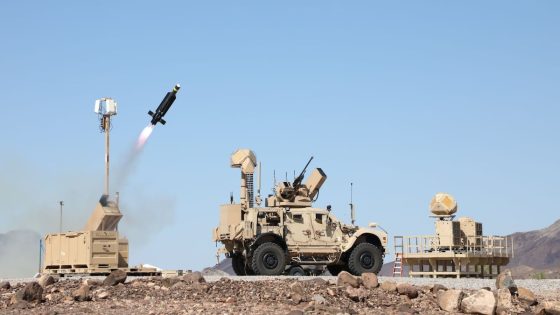The U.S. Army is planning to ask for more flexible funding for unmanned aircraft systems, capabilities to counter them and electronic warfare tools in its next budget as it takes lessons learned from Ukraineâs fight against Russiaâs invasion, according to Christine Wormuth, the serviceâs secretary.
âI think some of the areas that [Gen. Randy George], the chief [of staff of the Army] and I feel very strongly that we need to invest more in, both from the perspective of the Army… but also the needs of the joint force, is in the areas of unmanned aerial systems, counter-unmanned aerial systems and electronic warfare,â she said Wednesday at the Defense News Conference.
For instance, a Ukraine battalion commander told Wormuth earlier this year during training in Germany, that Russian electronic warfare capabilities were increasing âin ways that were concerning,â Wormuth detailed.
âI think youâll see that in the budget that goes up to Congress next spring,â Wormuth said. âThatâs an area where I think we also need to have more agility in our funding mechanisms because of the technology in those capability areas is changing so rapidly that we canât afford to get locked into something and then be only allowed to use that something for the next 10 years.â
Both Wormuth and George have discussed the possibility of budgeting differently in order to get some capability into the hands of soldiers much more quickly. One of those possibilities is asking Congress to fund pots of money dedicated for a specific capability rather than budget across a number of specific line items that tend to be a specific product or program.
But both have also acknowledged that getting congressional appropriators on board might not be so easy. âHistorically, theyâre generally⦠very skeptical of what they see as kind of slush funds. They have a lot of scar tissue around [overseas contingency operations], and how the department has used that over the years,â Wormuth said.
Even so, âthere is such a deep realization that we have got to change more quickly and that technology is changing rapidly right now that we do need to have more agile mechanisms,â she added.
Overseas contingency operations, or OCO, funding, used during the wars in Iraq and Afghanistan to pay for operations abroad, was a separate account with billions outside of the Pentagonâs base budget. It was often used to get extra funding for a variety of things rather than commit to paying for it within regular funding. Congress eliminated OCO funding beginning in FY22. Now the Defense Department must budget for any overseas operations within its base budget.
The Army plans to present a budget in these areas, according to Wormuth, that, for example, used to have 10 to 12 individual line items and now may have two or three.
âIf we keep it relatively narrow and focused and we demonstrate that we can use that agility in those areas effectively, we may be able to sort of have a proof of concept,â she said. âIâm cautiously optimistic.â
Jen Judson is an award-winning journalist covering land warfare for Defense News. She has also worked for Politico and Inside Defense. She holds a Master of Science degree in journalism from Boston University and a Bachelor of Arts degree from Kenyon College.
Source Agencies




